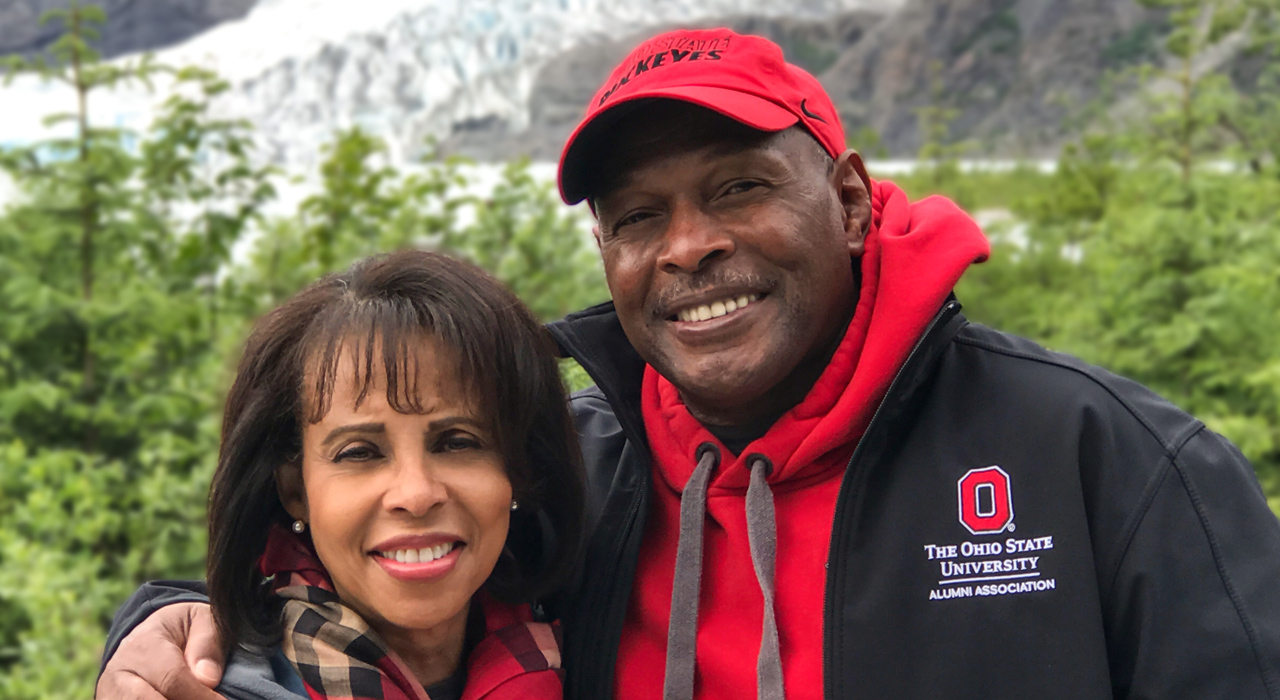The Archie and Bonita Griffin Scholarship to help coaches master the art of making champions
BY ROBIN CHENOWETH
Archie Griffin remembers climbing into the back of a mile-long El Camino in the early ’70s and settling onto artificial turf, cut to line the steel bed. In the cab, a teammate sat shotgun next to Woody Hayes, who gripped the wheel like he was steering a ship as he aimed the coupe toward downtown.
Without the usual display of jerseys and safety gear, no one seemed to notice the football legends zooming down High Street toward Children’s Hospital — or so Griffin says. But that day and others, the kids they visited knew exactly who they were.
Hayes was living out a directive he famously articulated almost daily to his players: “You can’t pay people back for being good to you. But you can always pay forward.”
Griffin and his wife, Bonita, know better than others the value of good coaching. All seven of Griffin’s siblings played college sports. Son Adam played for Ohio State; son Andre coaches football at Lima High. And until retiring from Nationwide Insurance human resources, Bonita used effective coaching to develop talent and build leadership skills.
So, it seems only natural that a scholarship has been established in their names: the Archie and Bonita Griffin Master of Sport Coaching Scholarship. Alumna Sandra Slomin, ’71 BS, donated the scholarship funds.
“Archie had wonderful coaches in life and on the field. This scholarship will ensure that a new generation of coaches has all that it takes to bring out the champion in athletes like him,” Slomin said.
First created by Professor Phil Ward and colleagues in 2016, the master’s program teaches coaching effectiveness, including nutrition, ethics, skill analysis and the role of race and gender in sports. EHE collaborates with the Department of Athletics, College of Medicine and practicing coaches.
As a coach, you’ve got to realize players are going to remember you, probably for the rest of their lives. – Archie Griffin
Coaches hold great sway over players, Griffin said. A long line of them, from Little League to the pros, sculpted him. At 9, he was the youngest player on the Maryland ACs rec team — and too big to play with kids his age. His coach, Bob Rand, nicknamed him Tank because he consistently finished last when running laps. Rand made him run more.
“He made me feel like I could play the game — even though I was the youngest and not nearly the best, he made sure I got in every game,” he said. “As a coach, you’ve got to realize players are going to remember you, probably for the rest of their lives.”
Even in corporate settings, collegiate athletes bring with them skills and attributes that prove invaluable to employers, Bonita said. “They work effectively in team environments, have an unbeatable work ethic and are accustomed to using feedback from managers as tools for continuous improvement,” she said. Good coaching shaped them.
The best coaches, Griffin said, are dedicated to their players. “They care, which I think is their most important characteristic,” he said.
Hayes was a master at this. Griffin recalls walking toward the venerable coach in a stadium corridor after a game. Hayes was looking down, deep in thought. Just as they passed, he glanced up and spoke, almost in a stream of consciousness.
“He said, ‘You’re the best damn back in the country,’ and kept walking. It blew me away,” Griffin said.

